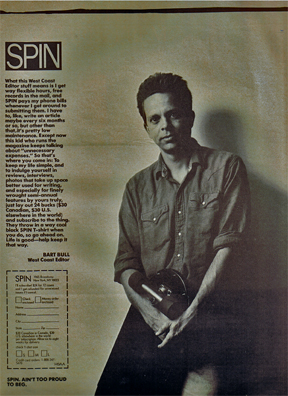(Walter Matthau and Jack Lemmon were dear friends for decades. I thought maybe since this piece has a Lemmon-y twist to it, I'd plunk it in here. Et voila!) So I’m watching, this very moment, “Irma La Douce,” a movie I’ve never seen before, and not one I’d ever even once considered watching either, even back in the day when the Catholic Church -- you remember them -- gave it the dreaded “C” rating. That’s “C” for “Condemned,” as in You Will Be Condemned Right Straight To Hell if you dare sneak in to watch the voluminously-cleavaged divorcee Elizabeth Taylor in “Cleopatra,” or the licentious James Bond of “Goldfinger,” or theTechni-Colorful Parisian pimps and gold-hearted Parisian prostitutes of “Irma La Douce.”
So I’m watching, this very moment, “Irma La Douce,” a movie I’ve never seen before, and not one I’d ever even once considered watching either, even back in the day when the Catholic Church -- you remember them -- gave it the dreaded “C” rating. That’s “C” for “Condemned,” as in You Will Be Condemned Right Straight To Hell if you dare sneak in to watch the voluminously-cleavaged divorcee Elizabeth Taylor in “Cleopatra,” or the licentious James Bond of “Goldfinger,” or theTechni-Colorful Parisian pimps and gold-hearted Parisian prostitutes of “Irma La Douce.”
(Admittedly, I haven’t been keeping up lately with contempo-Catholic doctrine/dogma/dictae, so I don’t know if I’m going partly to Hell on account of only watching part of it so far, or whether that merely gathers me extra time in Purgatory, Roman Catholicism’s metaphysical DMV. I do solemnly confess that I scrolled back during Shirley MacLaine’s bathtub scene to confirm the fact that you could absolutely certainly see a bare hint of bare left breast, one of the left breasts I’m personally least interested in seeing in all the world , true, but one that I can Confirm. With a capital “C." I am, after all, both a noted critic and an intrepid reporter.)
Set in Paris, this is movie Paris, a Paris set in Hollywood on a Hollywood set, a 1963 Hollywood set, a 1963 Hollywood Paris already weeping drippy nostalgia for a bygone Paris before that Paris has gone by. And 1963, I should probably remind you, is the last year of the 1950s. This is a Billy Wilder picture, but a Billy Wilder picture he didn't really write, based on a play, a Parisian sex farce, and based on Billy Wilder’s own nostalgia for his own brief sojourn in Paris, from back when he was working his way out of the Austro-Hungarian provinces en route to Vienna to Berlin to Paris to, finally, permanently, Hollywood; as a journalist working his the way up to screenwriter working his way up to director working his way up to screenwriting-director-producer, and working to keep his sardonic Viennese Jewish aesthetician’s ass out of Hitler’s frying pan.
But nostalgia, easiest and ickiest color in the whole box of cinematic crayons, is especially unworthy of Billy “All Laughs Cut On All Edges” Wilder, that impossibly rare creator of great comedy and great drama, the guy who maybe invented film noir, who wrote with Raymond Chandler, roomed with Peter Lorre, and worked with Marilyn Monroe and Ernst Lubitsch and Gloria Swanson and Eric Von Stroheim and Jimmy Cagney. Who escaped the Nazis but lived to learn that his family didn’t.
And who worked, again and again and again, in “Some Like It Hot,” and “The Apartment,” and “The Fortune Cookie,” and in “Irma La Douce,” with Jack Lemmon, determined clown-poet of corporate failure. Here he’s a hapless policeman, fired for putting too fine a point on his job of rounding up prostitutes, ending up a hapless pimp. (As you do.) All very Billy Wilder-esque, but inevitably, Jack Lemmon, genius film actor that he is, plays Jack Lemmon. Jack Lemmon in Paris, perhaps, Jack Lemmon, Parisian policeman, then Jack Lemmon, failed Parisian pimp {or mec, as the patois has it; you can bet we’ll be exploring and hyper-linking the hell out of that one, Mec-daddies) but above all, Jack Lemmon, the ultimate buttoned-down Man in the Grey Flannel Suit, The Organization Man with the extraordinarily empty existential briefcase. Never a boss, always a sheep, but an especially nervous, neurotic one, a sheep who can’t help foreseeing the shearing to come and the mint sauce to follow.
Lemmon would go on to age visibly, to wear and tear palpably, to fray at the Brooks Brothers cuffs of his nervous system, to survive the shearing sheds but to show every moment of humiliation in haunted eyes, in ever more poignant tics and twitches. Wilder’s movies declined, oddly, curiously, strangely, for so accomplished a master, and “Irma La Douce” marks the beginning of the end. It wouldn’t be long before he wasn’t makiing movies any more, Hollywood being Hollywood. It wouldn't be long, either, 1963 being the start of The Sixties, before Hollywood was done with Paris. A decade of post-WWII musicals served up to former GIs meant "Irma La Douce" was pretty much, uhm, the last time we saw Paris for the better part of a decade. London was swingin', the youth market was about acquire British accents and Beatle haircuts, and Paris sounded too much like accordions.
Style notes: Shirley MacLaine's Irma La Douce wears Paris green (we'll be discussing this at length some time further on down the road) throughout: hosiery, bra, negligee. And this despite the traditional French theatre ban on green costume. I bet there was some point to this. Maybe you know what it was.
Oh, and Floyd the barber was the helpful desk clerk at the hooker's hotel.
Sunday, August 26, 2007
Hollywood Hookers and Parisian Pimps
Posted by
Nasrudin
at
3:51 PM
![]()
Labels: accordions, Billy Wilder, breasts, Catholic, Hell, Hollywood, Irma La Douce, Jack Lemmon, Paris, Raymond Chandler
